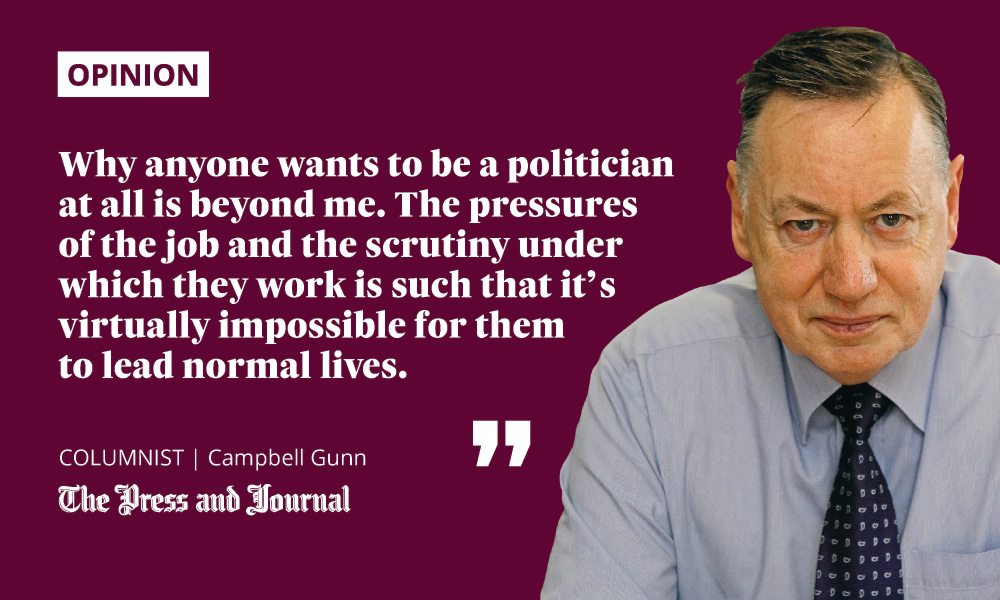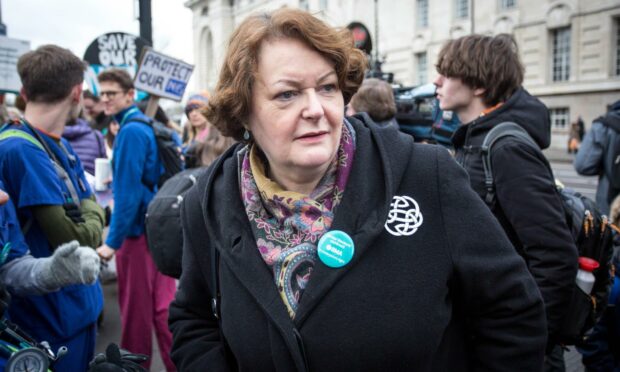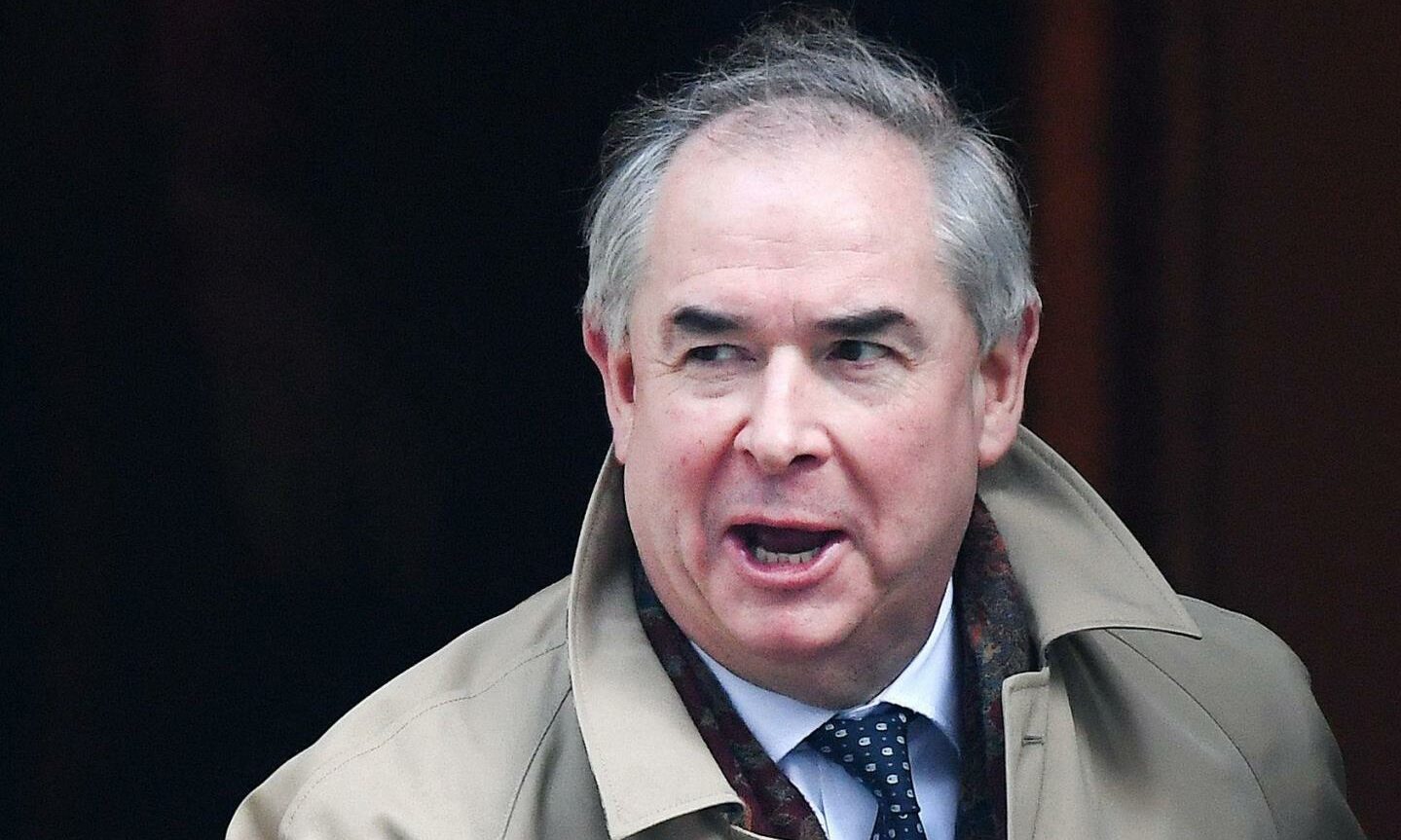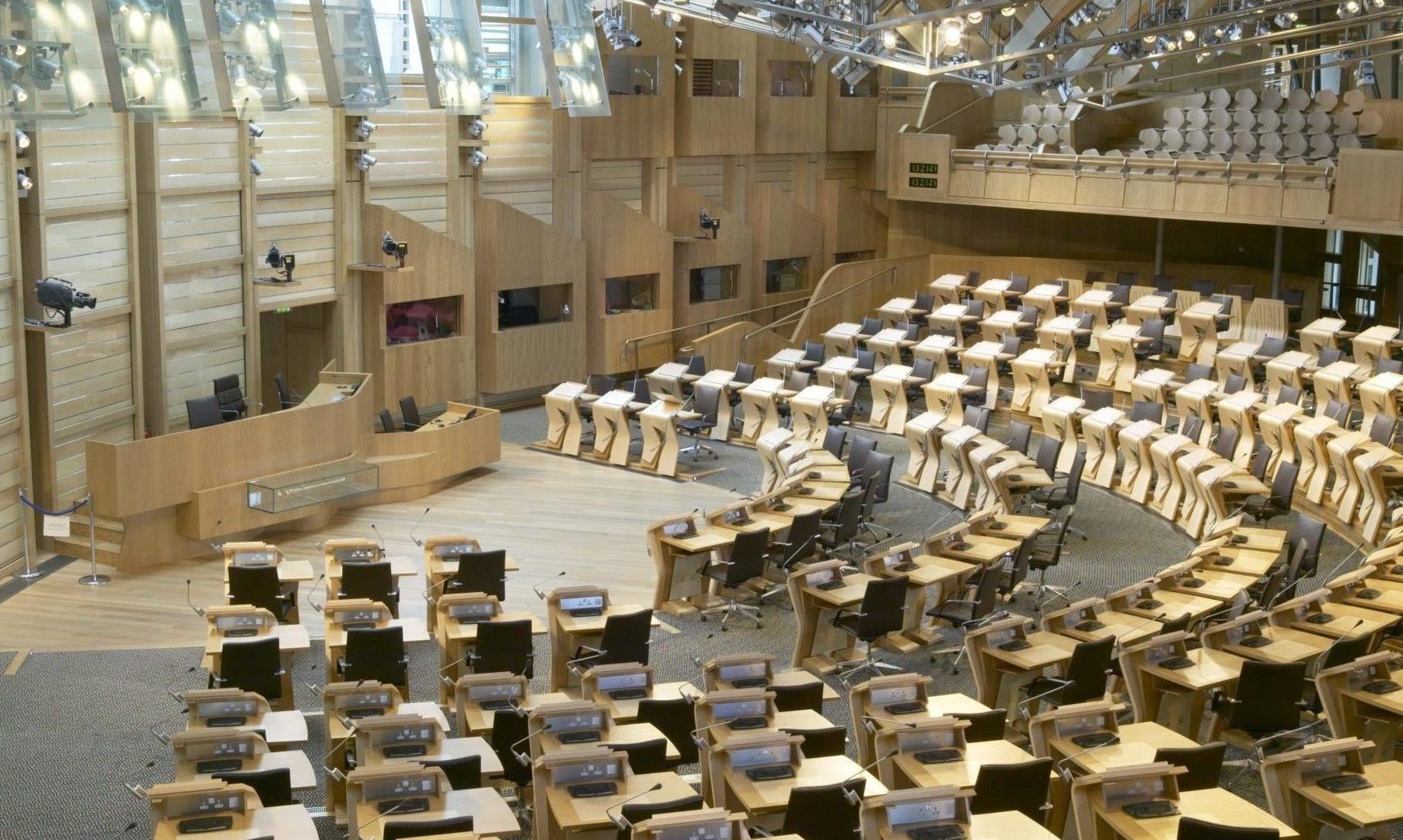Tales of lucrative second jobs, failures on declarations of interest, inflated expenses claims; thanks to these allegations, our politicians have never been held in such poor public regard.
And these are just the most recent accusations of sleaze directed at them. They should surely be spending their time working for their constituents, not lining their own pockets, most people believe. Moans from some of them that a salary of £82,000 is not sufficient for their needs adds fuel to the widespread opinion that most of them are in it for their own good.

But is that really correct? In fact, I believe that, for the overwhelming majority of MPs and indeed MSPs, nothing could be further from the truth.
As a political journalist, over the years I had to meet, interview, and on occasion socialise with politicians from every party. And I am firmly of the opinion that most of them became involved in politics because they genuinely believed that the policies their chosen party espoused would benefit the country. That’s true, I believe, whether they were Nationalists, Conservatives, Socialists or Greens.
Most don’t realise how hard politicians work
Whether politicians should be allowed to have a second job is not a straightforward matter. Surely few people would criticise a politician who is also a GP from working as a doctor during recess, or someone from a farming background helping run the family farm at the weekend?
I recall when SNP MP Dr Philippa Whitford, a cancer surgeon, was even ridiculously criticised by one media outlet for working – and saving patients’ lives – during a recess. Certainly, spending weeks working in a far-flung tax haven island is unacceptable, far less doing that work while in parliament and using parliamentary resources, as Sir Geoffrey Cox is alleged to have done, earning him close to £1 million in a year.
Mind you, politicians spending long hours on legal work instead of the job for which they were elected isn’t something exclusive to Westminster. Those of us who worked in the early days of Holyrood remember Labour MSP Gordon Jackson’s nickname of “Crackerjack”, earned as he regularly made his first appearance in the chamber each evening after a day working in court as an advocate, just in time to vote at five o’clock – “It’s five to five, it’s Crackerjack!”
However, while there are bad apples in politics, as there are in every sector of society, they are, I believe, firmly in the minority. Most voters gain what knowledge they have of politics from what they see on television or from social media.
And rows of empty benches at Westminster or empty desks at Holyrood during debates can look bad. But most members of the public don’t realise the amount of work which goes on behind the scenes, whether attending committee meetings, researching issues, writing speeches, dealing with correspondence, or working on behalf of constituents.
The dangers of the job are real
For the majority of politicians, the job is difficult and time-consuming. For a Scottish MP at Westminster, it entails long hours of travel each week, time spent away from family, and weekends back in the constituency dealing with voters’ problems, not to mention the necessity of attending every minor local social event in order to show face.
Last week, the Scottish parliament announced a project to assess whether security staff should be provided to MSPs at their surgeries
Then there’s the abuse to which all politicians are subjected, something which has increased exponentially thanks to social media, as well as the physical threats they face – remember we’ve lost six MPs to murder since 1979, most recently Sir David Amess, just last month.
The danger faced by politicians is real, and last week, the Scottish parliament announced a project to assess whether security staff should be provided to MSPs at their surgeries. There was even a suggestion that the politicians could be given lessons in self-defence.
MPs can never be truly ‘off duty’
Then there’s the scrutiny of politicians’ private lives. How many people would be happy to have the history of their lives trawled through? Something offensive which you may have said in anger, a stupid tweet posted late at night years ago, high jinks when you were a student, any of these would be meat and drink for some sections of the media.
Indeed, why anyone wants to be a politician at all is beyond me. The pressures of the job and the scrutiny under which they work is such that it’s virtually impossible for them to lead normal lives and be completely “off duty” at any time.
And while these considerations may put some people off standing for elected office, I’m constantly surprised at the number who, despite the obvious drawbacks, are still willing to put their heads above the parapet for what they consider to be their public duty. It may be an unpopular view, but I don’t believe our politicians are paid anything like enough for the stressful, thankless jobs that they do.
Campbell Gunn is a retired political editor who served as special adviser to two first ministers of Scotland and a Munro compleatist


